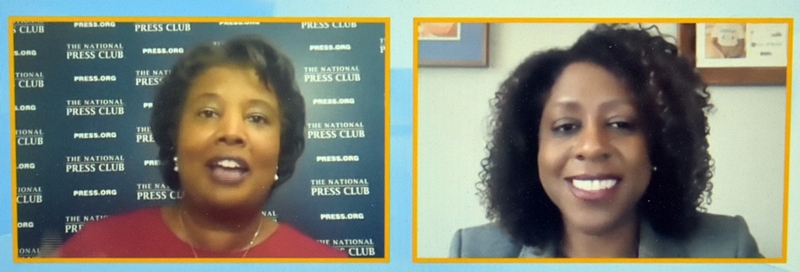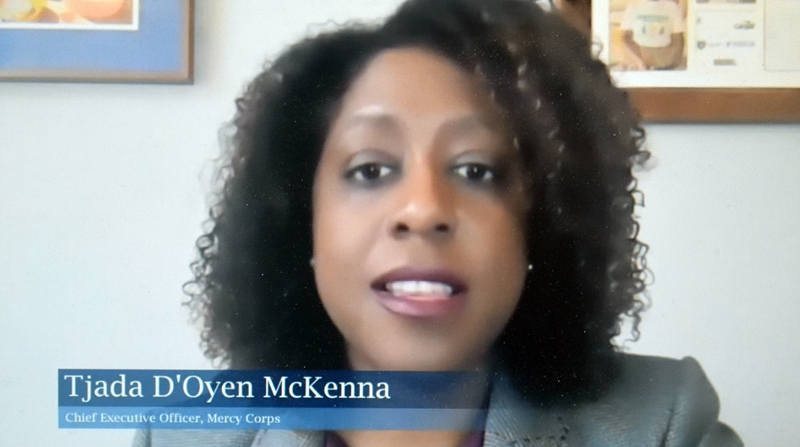Mercy Corps CEO says pandemic intensified global humanitarian crisis

The COVID-19 pandemic has exacerbated poverty and intensified humanitarian crises around the world, Mercy Corps CEO Tjada D’Oyen McKenna told a National Press Club virtual audience on Thursday.
“Never before have we faced a humanitarian crisis of this magnitude,” said McKenna in a Club Headliners interview with NPC President Lisa Nicole Matthews, reflecting on the year’s events. “Extreme poverty is on the rise for the first time in two decades because of the pandemic.”
Mercy Corps' 5,600 humanitarians work in more than 40 countries, including conflict zones such as Yemen and Syria. The number of people in need of humanitarian assistance since the pandemic began has grown 40 percent from one in 45 people to one in 33 people, or 235 million people, McKenna said.
“Women and girls suffered the worst of the pandemic across every sphere,” she said, with poor health outcomes, livelihood losses, increased care burdens at home, physical abuse and poverty. The United Nations estimates a 9.1 percent increase in women’s poverty, she noted. “In times of crises, we must respond to women’s needs—to put women out front in our thinking.”
Mercy Corps helped more than 37 million people this past year, she said. That assistance included providing COVID-19 information to more than 9 million farmers in East Africa, using 3D technology to produce face shields for health caseworker in local hospitals in Tunisia, and providing clean water, soap and other hygiene essentials to help more than 12 million people stay healthy and protect themselves from the virus, McKenna said.
Wealthy countries must help poor countries get the COVID-19 vaccines, McKenna said. Of the 30 most conflict-affected countries, just two will receive vaccines in early 2022 while the rest may have to wait until 2023. Disinformation about the vaccine is another global challenge. In Northern Nigeria, Mercy Corps has a “rumor tracker” to identify and correct false information about vaccines so trust in public health systems can grow, she said.
“Until everyone is vaccinated, we’re all at risk,” she said.
McKenna also urged Congress and the Biden administration to continue its support of The Global Fragility Act, a bipartisan initiative that dedicates $1.15 billion over the next five years for conflict prevention and peace-building in countries at risk of violence and conflict.
McKenna, who became the first Black woman to lead a major international aid organization when she took the helm at Mercy Corps, also offered seem career advice for young women. Women should not "think twice about their ability to rise to these positions. Don’t put any barriers on yourself," she said.

